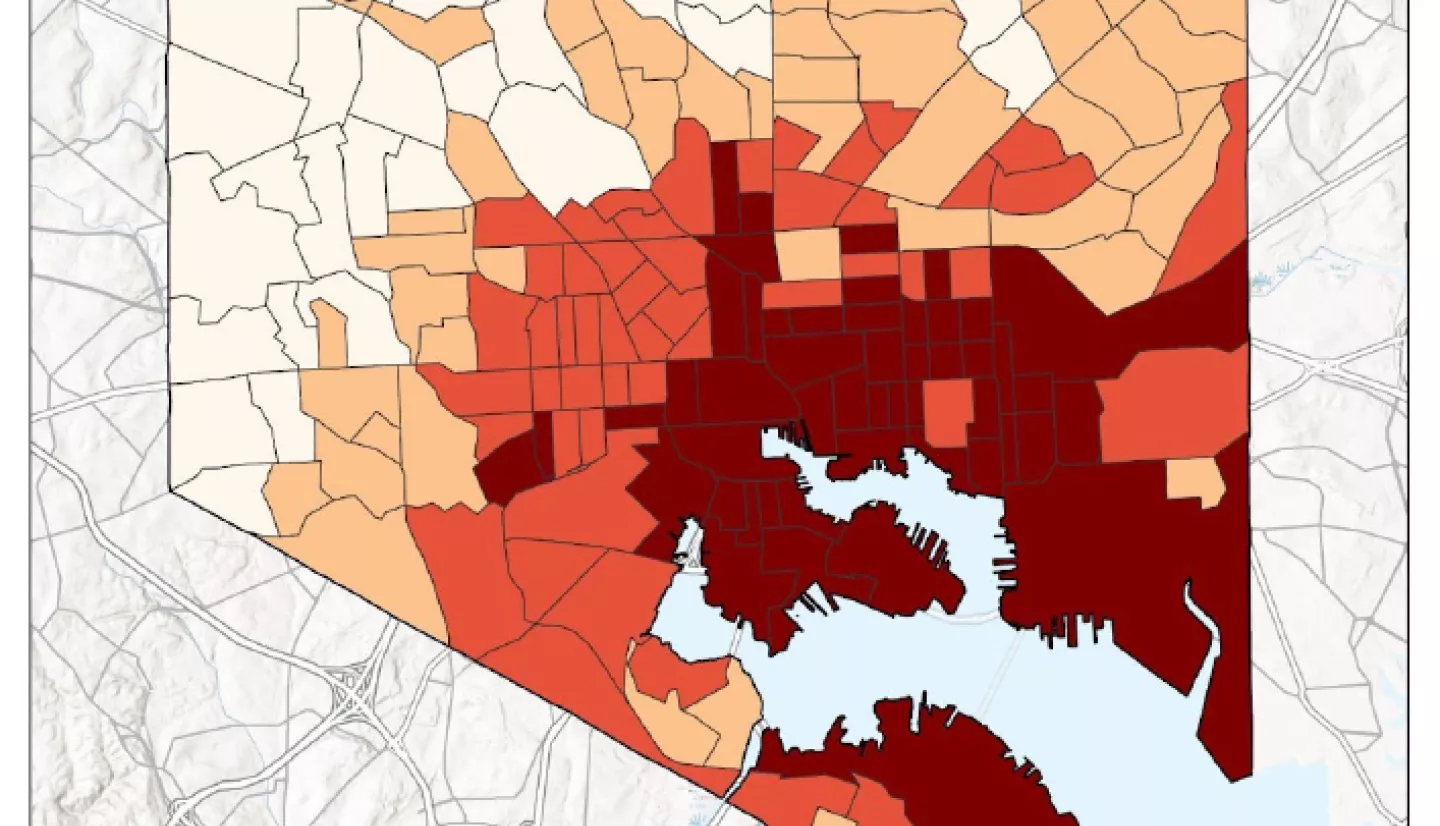Team Members: Jaime Madrigano PhD, Co-investigator (Johns Hopkins University), Darryn Waugh PhD, Co-investigator (Johns Hopkins University), Benjamin Zaitchik PhD, Co-investigator (Johns Hopkins University), Bianca Corpuz, Graduate Research Assistant (Johns Hopkins University)
Executive Summary: Extreme heat is a significant and growing health hazard. Poor and minority urban communities are disproportionately impacted by the effects of extreme heat, making this a significant environmental justice concern. While heat mitigation strategies often occur at the city-level, significant within-city spatial differences in heat exposure reveal that heat vulnerability in underserved and populations may not be adequately characterized, resulting in heat mitigation strategies that are insufficient to address community needs. In efforts to address this gap, many urban communities have begun to develop their own heat reduction strategies, but these can lack a strong scientific grounding for implementation and feasibility to reduce temperatures within a specific community setting. Collaboration between researchers and local communities is critical to effectively define, evaluate, and iterate heat mitigation strategies to be feasible, effective, and transferrable to other neighborhoods. This project builds upon existing partnerships between Johns Hopkins University research scientists and neighboring communities and leverages already proposed community driven strategies for heat mitigation, ongoing collaborative data collection, and existing remote Earth Observation data to inform heat mitigation planning with neighborhood-scale resolution in Baltimore city. We begin by generating a prioritized set of proposed strategies that are driven by community stakeholders. In partnership with the community, we collect and integrate in situ data with remote Earth Observations to generate high resolution maps of hourly temperature and heat index. To ensure the development of equitable and environmentally just heat maps, we further integrate these high-resolution temperature maps with census block level demographic and socioeconomic data, informed by vulnerability metrics aligned with the primary concerns of community members and produce time varying heat vulnerability indices. Additionally, we estimate the heat reduction effectiveness of proposed community strategies to mitigate local heat conditions. This project will result in a retrospective tool that can be used to discuss spatio-temporal variability in heat risk and integrate risk over time in six Baltimore City neighborhoods. Working through an equity lens, this collaborative project will result in scientifically sound and environmentally just strategies for heat mitigation which can be adapted by urban communities across the US.
